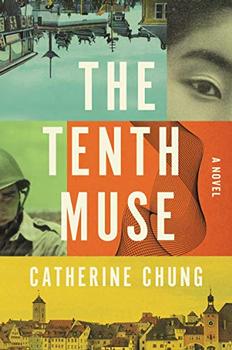Summary | Excerpt | Reviews | Beyond the Book | Readalikes | Genres & Themes | Author Bio

Critics' Opinion:
Readers' Opinion:
First Published:
Jun 2019, 304 pages
Paperback:
Apr 2020, 304 pages
 Book Reviewed by:
Book Reviewed by:
Michael Kaler
Buy This Book
MY RECENT DISCOVERY is rooted in the work and time of another mathematician, named Emmy Noether, and those who orbited around her. It was during her time that we began to anticipate how complex things might get without yet being entrenched in that complexity—like standing on the brink of chaos. And what company she stood with, on that very brink! It was the time of Bohr, of Heisenberg, Wittgenstein, Gödel, Einstein, and Turing. Quantum mechanics was being born, as was modern atomic theory, relativity, the computer, the uncertainty principle, the black hole, and the nuclear bomb.
It was an exciting time, but everything was in disarray—there was the rubble of creation, the rubble of destruction. We were at the heights, from which we imagined we could see everything—not just what we knew, but all the possibilities as well—a theory explaining everything, and its inverse: the collapse of science, of language itself. We were on the brink of understanding God, or killing him forever, we didn't know which. Exhilaration and dread came together, and the knowledge that no great discovery can come without bringing an equivalent terror.
It was around that time that Schieling and Meisenbach exploded onto the scene with a brand-new theorem that dazzled everyone who read it and seemed to sketch a possible opening to the Riemann hypothesis—a hypothesis some mathematicians say is too beautiful not to be true, and others say would be akin to proving the existence of God.
This theorem captured the attention of every major mathematician who mattered then and was quickly labeled a triumph for the side of order and beauty: an attempt to knit together the chaos. And even after the proof was reviewed, and tested, after a public cheer went up, even after Einstein himself made it known that he would like to shake their hands, neither Schieling nor Meisenbach stepped forward. It eventually became known that Meisenbach had been a student of Noether's at the University of Göttingen before she was exiled by the Nazis. Though he'd remained there in Götingen through the war and afterward, his partner Schieling had disappeared shortly before publication of their paper.
In deference to his partner, in silent vigil, Meisenbach refused to appear for any of the honors offered to him, and he never spoke of the man who'd coauthored what would be his greatest contribution to the field. Instead, he waited for word or news of Schieling's whereabouts. Word never came. And so Schieling, vanished, and Meisenbach, silent, were both forgotten, lost to the turmoil of their times. It would be shocking how quickly this happened, given their contribution, but they were working during one of the most exciting times for science, and also the most dangerous. The world order was changing on every level: to quote Newton, for every action there is an equal and opposite reaction, and the earnest idealism that had briefly ignited the hearts of students all over the continent of Europe in the aftermath of the First World War had been overtaken by fury and nationalism.
The sky was opening. The gods had fallen. Fascism had gained its foothold: Mussolini was leader in Italy; Hitler was on the rise in Germany. The mood of the times was turning murderous. And so the war came, and bombs were dropped and schools were closed and the Jews and homosexuals, the dissidents and handicapped were led away as their neighbors watched on, and so many, so many were killed.
Emmy Noether was the first of the mathematicians in Göttingen to lose her job, and she went to America to live and work, where she died very soon after. Göttingen, that haven, that bastion of mathematics and science, was overtaken by Nazis. Courant was gone. Klein was gone. Everyone who could escaped to England or America. When asked what would happen to the famed mathematics department, now gutted, Hilbert responded, "What mathematics? There is no mathematics in Göttingen anymore." And such was the loss in the realm of mathematics and science, and such was the loss in the world, that no one noticed too much when both Schieling and Meisenbach were forgotten.
Excerpted from The Tenth Muse by Catherine Chung. Copyright 2019 by Catherine Chung. Excerpted by permission of Ecco, an imprint of HarperCollins Publishers.




Fanaticism consists in redoubling your effort when you have forgotten your aim
Click Here to find out who said this, as well as discovering other famous literary quotes!
Your guide toexceptional books
BookBrowse seeks out and recommends the best in contemporary fiction and nonfiction—books that not only engage and entertain but also deepen our understanding of ourselves and the world around us.